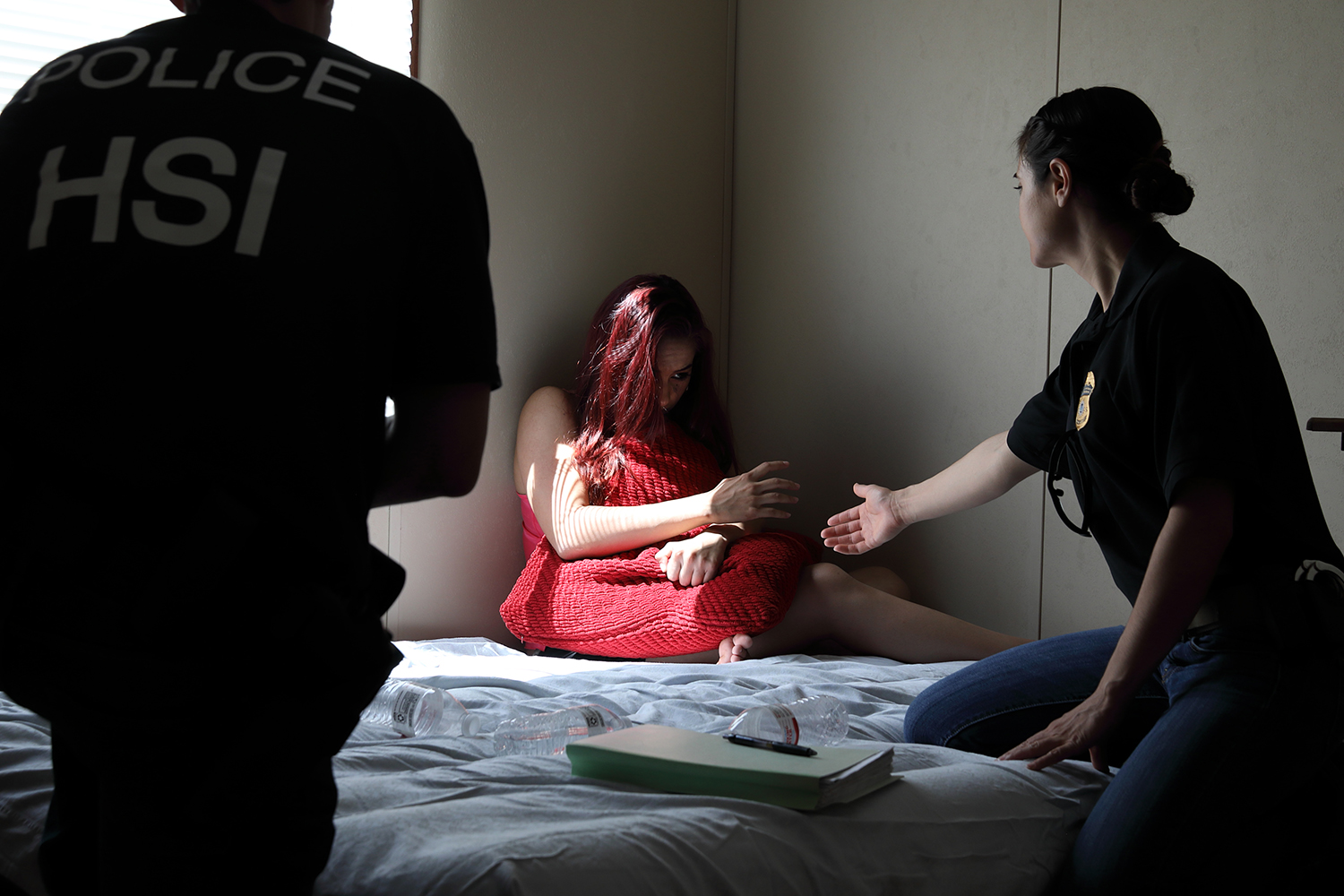I started sex work in my early teens. Older boys in the foster care homes and group homes I grew up in noticed from the beginning that I was clearly very feminine, and bullied and took advantage of me sexually. Eventually I ran away.
I found community on the street with other LGBTQ people, most of them with backgrounds like mine. I met witty, clever older trans women who could talk shit like sharp shooters from the Wild West. They taught me that there would always be people who’d try to control my body, try to reap the benefits for themselves regardless of what I wanted. That people would want to use my butthole, to put it succinctly, so I could charge entry or I could let them hang out for free.
It’s easy to assume I was being “groomed,” but that’s not what was happening. I learned that there was power in the marketing and sale of my own body, my own presence, my own company. It was cathartic in a way; it almost felt like reclaiming some control over my trauma from childhood abuse. Sex work wasn’t always voluntary, but much of the time it was.
Even at that very young age, we saw sex work as liberation. We saw sex work as survival. We saw sex work as power. And we saw sex work as a way to have a good time, because with all the things that a lot of us had been through, we understood that life was fleeting.
When I was arrested at 19, I was working with a white trans girl who happened to be 17—I didn’t know that, but I’d be lying if I said I’d have done anything differently. Had we been the same age, it would have been a misdemeanor. But the way media and law enforcement told it, all of a sudden I was a killer pimp drag queen, grooming America’s innocent youth. I was charged with multiple counts of human trafficking, ended up taking a plea deal for pimping and pandering of a minor and sexual exploitation of a minor, was sent into the men’s prison system, and paroled out at age 32 to begin navigating the hurdles of the sex offender registry.
The cops who arrested us had found a crack pipe, so the prosecutor also said I’d gotten my victim addicted to drugs to coerce her.
There were different factors that played a role. Back then I was an up-and-coming entertainer in the young gay Atlanta scene, which made the story more salacious and lurid. And a bunch of us were living in this big house with an older landlord, who had a lot of young boyfriends. We weren’t involved in each other’s business at all, other than him being my landlord, but legally our cases became linked under a part of Georgia hearsay law known as res gestae. Essentially, this makes evidence from one case admissible in another, if it involves similar conduct and occurred around the same place or time period. And of course, I’m Afro-Latina and the girl I was working with was white.
I’ll never forget the prosecutor during my plea hearing. She got up and told everyone how I wanted people to think I was a victim too, but in reality I was a very conniving and calculating predator who targeted vulnerable youth intending to turn them out as prostitutes. The cops who arrested us had found a crack pipe, so the prosecutor also said I’d gotten my victim addicted to drugs to coerce her and feed my own habit. They made it sound like I was keeping multiple 5-year-olds chained up in a basement, even though my charges only ever said I had one victim and we were only two years apart in age.
Arbitrary distinctions make people out as either victims who need help, or predators who target America’s children.
During the two years I sat in county jail fighting my case, no one ever cared that I’d once been trafficked myself. Reporters didn’t even get my name right, let alone ask for my side of my own story.
A decade and a half ago, the media portrayed human trafficking as something that happened in faraway countries. But today, the national narrative is that sex workers were all victims who’ve been abducted and are waiting to be saved by law enforcement.
When you read a headline that says multiple underage victims were rescued in a successful anti-human trafficking sting, resulting in multiple arrests, what actually happened is quite likely to be a story more like mine. It’s the same kind of narrative applied to illicit drugs, where arbitrary distinctions make people out as either victims who need help, or predators who target America’s children. When in reality, those people were often all doing the same thing, and just trying to get by rather than hurt anyone.
The idea that all sex work is born of sheer desperation, that all sex workers are trafficking victims, is a lie that exists to further attack and stigmatize disenfranchised communities of color. People who use sex work to survive, so many of whom are trans women of color, often find a lot of freedom in it. People who choose sex work also were rarely choosing from an endless list of other options. Those truths can exist at the same time.




